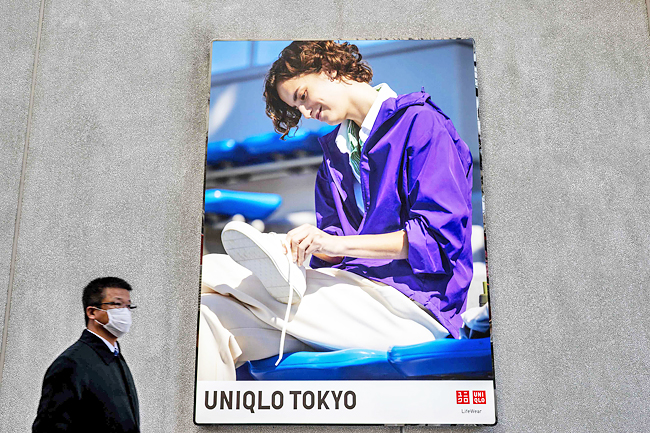TOKYO (AFP) – Fast Retailing, the parent company of Japanese clothing giant Uniqlo, said yesterday its net profit for the first quarter slid 9.1 per cent because of the COVID-19 lockdown in China.
The retail behemoth reported JPY85 billion (USD645 million) net profit from September to November 2022 but left unchanged its forecast of JPY230 billion for 2022 to 2023.
“(The) result was due primarily to a large decline in profits at our Uniqlo operation in the mainland China market caused by COVID-19 restrictions on movement,” the company said in a statement.
Profit for international business also declined because of “the temporary suspension of operations in Russia”, it added.
But with the exception of China and Japan, Uniqlo business “performed strongly”, it said.
Sales grew 14.2 per cent to JPY716.4 billion but operating profit dipped two per cent to JPY117 billion.
Fast Retailing chief financial officer Takeshi Okazaki said the firm had experienced changing fortunes in China in recent months.

“Our sales saw a temporary boost as China’s pandemic restrictions were eased in December, but they declined again after people in many parts of the country started to refrain from going out in mid-December,” he told reporters.
“Since January, sales started picking up rapidly again. The situation in China has been drastically changing in the span of a month.”
He said he expected the firm would get “back on the path to growth” in the mainland as people moved towards living with COVID.
Following years of aggressive global expansion, Fast Retailing is one of the world’s biggest clothing retailers, rivalling Spanish giant Inditex, which owns Zara, and Sweden’s H&M.
As well as Uniqlo, it owns American clothing brand Theory, France’s Comptoir des Cotonniers and lingerie label Princesse Tam Tam.
On Wednesday, Fast Retailing announced it will increase the salaries for thousands of employees in Japan by up to 40 per cent.
The move will raise its labour costs by around 15 per cent, but Okazaki said Fast Retailing expects to reap the rewards.
“The growth of each individual employee will result in improving the competitiveness of our company,” he said.




